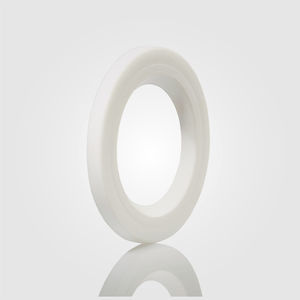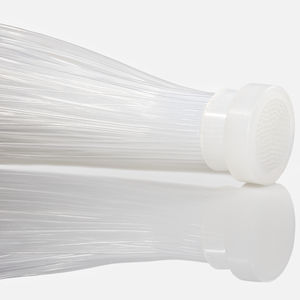
- Products
- PTFE diaphragm
- Polyfluor Plastics bv

- Company
- Products
- Catalogs
- News & Trends
- Exhibitions
PTFE membrane elastomer

Add to favorites
Compare this product
Characteristics
- Material
- elastomer, PTFE
Description
Polyfluor porous membranes are not chemically attackable, so they are extremely suitable in aggressive environments. Partly due to the hydrophobic properties of PTFE, our membranes are frequently used for, among other things, analyzing laboratory samples. Our membranes allow for effortless measurement of chemicals and solutions and withstand the most challenging environments.
Polyfluor membranes can be supplied with various pore sizes and porosity volumes, which allows us to have a solution for every question. However, if we do not have one immediately available, we will devise a solution immediately and provide you with the best possible service.
Flexible Membranes
Membranes, also called diaphragms, are airtight seals between two spaces that are typically different from each other. Consider, for example, a pump where water and air must be separated from each other.
Some of the exceptional properties of PTFE is that it can withstand extremely high temperatures (from -190°C to +260°C) and has a high degree of chemical resistance and has a particularly low coefficient of friction. Due to the use of PTFE as a base material for these membranes, they can be used in various, critical applications in numerous industries.
Another great advantage of creating products with PTFE is that it is UV-resistant, non-flammable, flame-retardant, and is non-hygroscopic with a water absorption of only < 0.01%.
There are roughly two types of membranes, one for pumps and the other for valves. The pump diaphragms are usually round while the diaphragms for valves are usually square and often combined with an elastomer.
Catalogs
No catalogs are available for this product.
See all of Polyfluor Plastics bv‘s catalogs*Prices are pre-tax. They exclude delivery charges and customs duties and do not include additional charges for installation or activation options. Prices are indicative only and may vary by country, with changes to the cost of raw materials and exchange rates.




